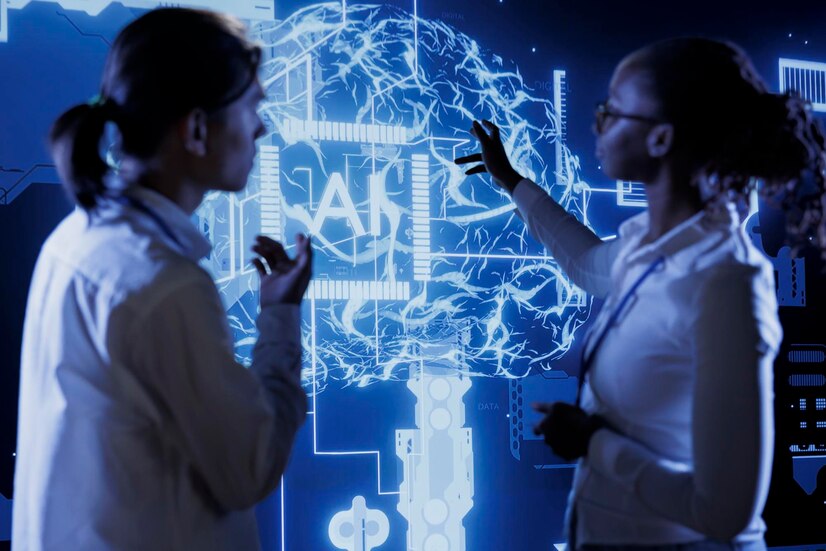Introduction
Artificial Intelligence (AI) is revolutionizing industries worldwide, and CBSE has introduced AI as a subject in Class 9 to prepare students for the future. This course aims to provide foundational knowledge of AI concepts, project development, ethical considerations, and basic programming skills using Python. With a structured curriculum focusing on theoretical and practical aspects, students gain hands-on experience and critical thinking abilities to solve real-world problems using AI.
CBSE Class 9 AI Curriculum Overview
The CBSE Class 9 AI syllabus is divided into different sections that ensure a holistic understanding of artificial intelligence. Below is a detailed breakdown:
1. Core Concepts of AI
- Introduction to AI: Understanding AI, its applications, and impact on industries.
- AI Project Cycle: Steps involved in creating AI solutions, including problem identification, data collection, model training, and evaluation.
- Ethics in AI: The role of AI in society, biases in AI, and ethical concerns.
- Data Literacy: Importance of data in AI and fundamental data analysis techniques.
- Mathematics for AI: Basics of probability, statistics, and algorithms required for AI applications.
- Introduction to Python: Basics of Python programming, syntax, and logical thinking.
- Generative AI: Introduction to generative models and their applications in various fields.
2. Curriculum Structure
The CBSE AI syllabus consists of three key parts:
| Section | Description |
|---|---|
| Part A: Employability Skills | Focuses on soft skills such as communication, self-management, and ICT skills. |
| Part B: Subject-Specific Skills | Covers AI concepts, project cycle, neural networks, and Python programming. |
| Part C: Practical Work | Hands-on activities, projects, and case studies for practical AI implementation. |
3. Learning Outcomes
Upon completing the course, students will:
- Understand the basics of AI and its real-world applications.
- Learn how to apply AI concepts to problem-solving.
- Develop basic programming skills in Python.
- Analyze and interpret data for AI models.
- Evaluate ethical implications of AI in society.
4. Practical Applications & Projects
CBSE emphasizes project-based learning to help students apply AI concepts effectively. Some project ideas include:
- Chatbot development for customer support.
- AI-based image recognition systems.
- Predictive models using data analysis.
- Sentiment analysis of social media posts.
- AI-driven recommendation systems.
5. Career Opportunities in AI
By introducing AI at the school level, students can explore various career paths such as:
- Data Scientist
- AI Engineer
- Machine Learning Researcher
- AI Consultant
- Robotics Engineer
Conclusion
The introduction of Artificial Intelligence in the CBSE Class 9 curriculum is a step toward future-ready education. With a structured syllabus covering AI fundamentals, ethics, Python programming, and practical applications, students can build a strong foundation in this emerging field. By engaging in projects and hands-on activities, they develop essential skills that can open doors to exciting career opportunities in AI and technology.



